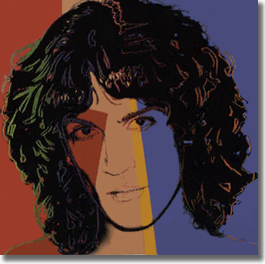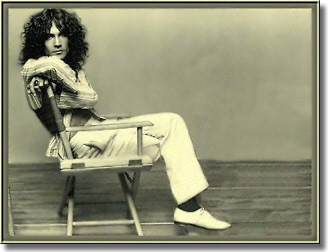
| Search JoyZine with Google Site Search! |
|
Billy Squier
Drawing inspiration from Led Zeppelin, Queen, Fleetwood Mac and Genesis amongst others, he has continued to release quality albums of hard rock/pop crossover material. In the Squier has largely been ignored, even though he toured with Whitesnake in 1981 and played the Reading Festival. The story in the US is entirely different. There he has scored major successes with Don't Say No and Emotions In Motion, both of which made number 5 in the Billboard album chart. The former also produced hit singles in "The Stroke" and "My Kinda Lover." By the time he released his eighth studio album, Tell The Truth, in 1993, Squier could reflect on world-wide sales of over 11 million records. (Encyclopedia of Popular Music Copyright Muze Ltd. 1989—1998 ) Q: What got you really started in the music world? BILLY: The Rolling Stones. They portrayed not only a musical, but a sociological, force. The times which they embodied—reflected and responded to—were times which affected us all. And as social commentators, The Stones were very forceful. They got me off and running very quickly with the idea that it was more intriguing or significant to be part of these greater concerns, to be part of a group—even taking into consideration that I remain somewhat of a loner. I was an only child, and I've always taken a singular attitude toward what goes on in my life, what goes on around me. Q: When you reached a certain level of success, did it change your attitude toward the music industry? BILLY: I'm older, wiser and richer, and I still have just as many headaches. It hasn't changed me drastically; certainly, not in terms of relationships. The people I'm close to, and there aren't many of them, have been close for a long time. And we know each other well enough to know it isn't the quantity of time you spend together, it's the quality. Q: Would you consider that your sensitivity has developed a lot of your material? BILLY: In "Lonely Is the Night," from Don't Say No, I wrote of the demons that come out at night. Their very presence attests to the down-to-earth approach that I work with. Q: How do you find ways around your loneliness?
Q: You mentioned that the song "She's a Runner" was about an LA skateboard queen who you met while walking the streets of Venice (California). BILLY: She was a runner. I have often run into people whom I never wanted to see in pain. She was one of them. She always had answers for my questions. We became good friends, but when she died in an auto accident, I felt dedicated to write a song about her. Q: You write a lot of songs about your relationships with women and about personalities.... BILLY: That has a lot to do with what I do best, since I run into a lot of those relationships. I've seen a lot of women that I've met, run into walls of confusion and unhappiness. It's especially noted in two of my songs on my last LP, Emotions In Motion: "Everyone Wants Her" and "Learn How to Live." Q: You were with a band called Piper. What happened to them? BILLY: Piper was when I really emerged. The band began as a democracy, but I slowly took control, which naturally alienated my colleagues. When you have one person stamping on everyone else, that's going to bruise a few egos. I feel bad about it now. I hope I didn't stifle them too much, but I was developing more and more of an idea of what I really wanted. It was a focusing process for me. I didn't want to commit myself to broken promises. Q: Is that when you decided on a solo career? BILLY: I decided it was better to please myself. I wasn't getting any younger. I had to take control of my albums and I couldn't do that without hassles within Piper. So, when it came time to make the third Piper album, I didn't think it was worth carrying on with that band. It was time to make the first Billy Squier album. Q: You told me earlier that no record company wanted you. What did you do in the meantime? BILLY: I don't believe in working at jobs that mean nothing to me—like being a waiter. I know it's idealistic, but that's the way I've always thought. Why be a waiter for six hours a day when you could be out doing what you want to do? Q: Your new album is entitled In It For Keeps. What inspired that title? BILLY: Dedication to staying alive in the business. It's great having been able to maintain that through my last two albums. What makes this album different than the others is that it has more harmonizing to it. I really wanted to get that type of sound down pat. Q: You wrote a song called "Catching Your Tears," which is going to be used as the title track for the movie Moving Hearts. You also did "The Best Years of My Life" for Fast Times at Ridgemont High. Do you like writing material especially aimed at films? BILLY: It all depends. Right now, I've been lucky to enjoy these songs. It's nice to hear this type of material in a film story. It kind of separates the type of audience you're appealing to when you write the material. "Catching Your Tears" reaches tremendous emotional highs, and it does fit in with the title of the film. I did all the instruments for "The Best Years of My Life." That's something I really got into doing. Q: Do you like the image you've maintained? BILLY: I'd sometimes like to be taken more seriously. It all depends on what type of response you receive from the material. Q: How extensive has the touring been for you? BILLY: When I first started out, I was opening up for headlining acts. With the progress of Emotions In Motion, I've been doing a lot more headlining myself. The touring has been a mixed time for me, there have been nights I really enjoyed and other where you feel like hitting the roof. However, these things happen all the time. Touring is a big responsibility in this business. You must be able to maintain a certain level of sanity, or you will go nuts. Q: So, in that sense, you realize you're in it for keeps. BILLY: Yes. Usually, my head starts spinning, thinking of so many different things to do. Sure, I'm in it for keeps. Why do anything else? |
 interview by Robert Haber
interview by Robert Haber BILLY: One minute I can be the center of attention at a concert, being fawned over, and be very confident and in control, in my element, then that can all change drastically with the hotel room door closing behind me at night, being there by myself and suddenly realizing that the world I just left behind is, in reality, not the end-all and be-all. And, I freely admit, there are times that that door closes and I just fall apart.
BILLY: One minute I can be the center of attention at a concert, being fawned over, and be very confident and in control, in my element, then that can all change drastically with the hotel room door closing behind me at night, being there by myself and suddenly realizing that the world I just left behind is, in reality, not the end-all and be-all. And, I freely admit, there are times that that door closes and I just fall apart.